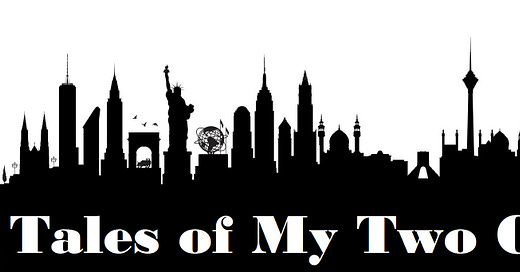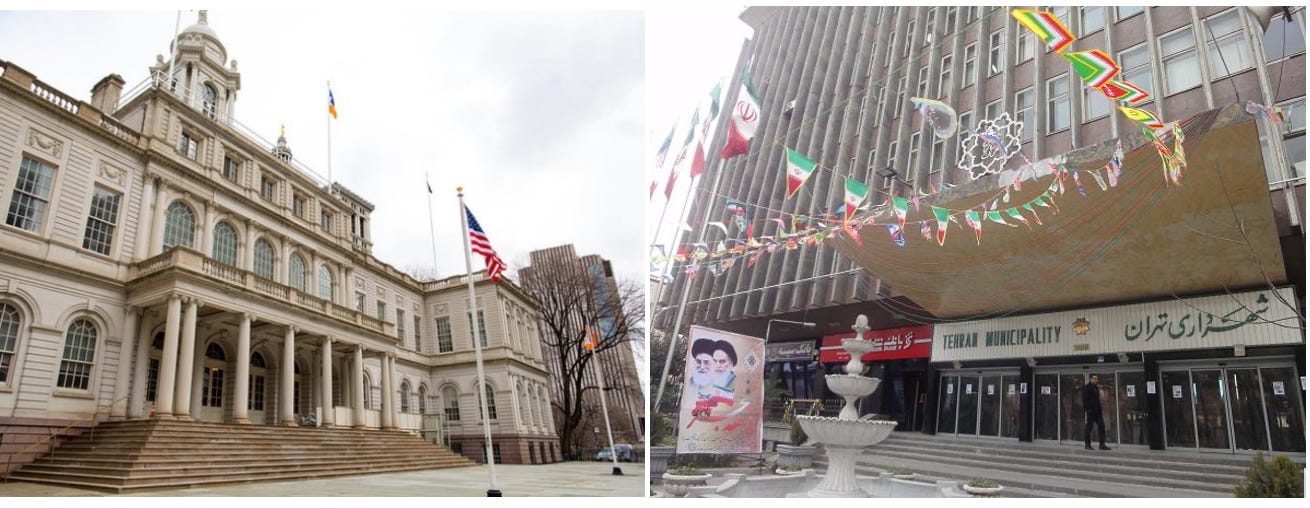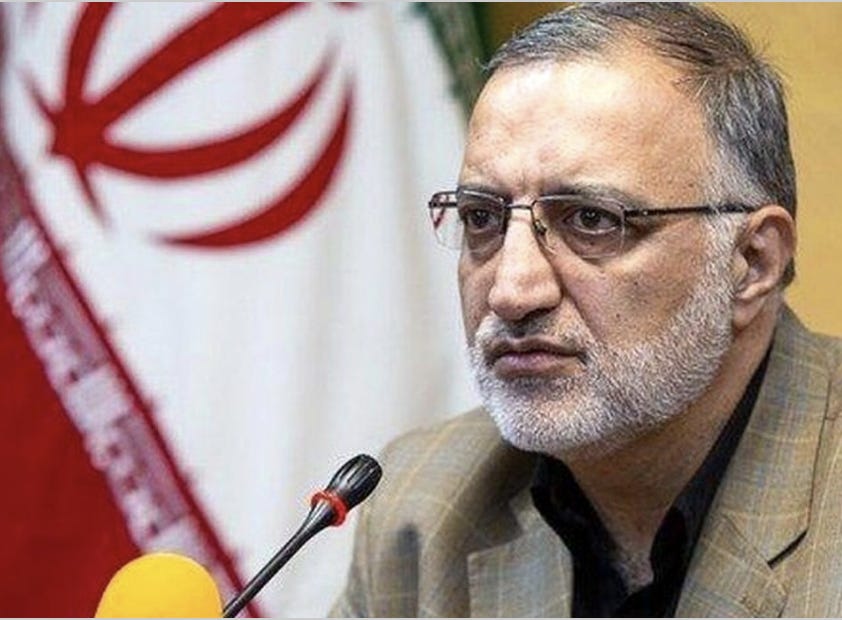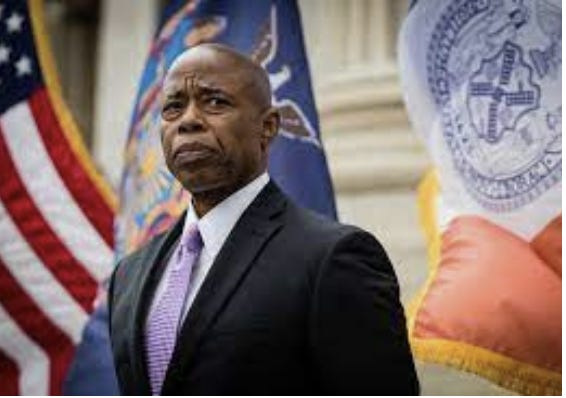What Makes a Good Mayor?
Tehran and New York City face a choice between ideology and pragmatism
Parallels and Differences facing the two cities in electing a new Mayor
In my last post I looked at the June 2021 local elections in both Tehran and in New York City. The cities are now both anticipating a new mayor. In New York City, mayoral elections will take place in November. In Tehran, the newly elected 21-member city council nominated a new mayor this week, and he is awaiting confirmation by the minister of interior. As of this writing there are reports of mobilization of opponents, so confirmation, while likely, might possibly be rejected, in which case the city council would have to select another candidate.
There are enormous differences in the mayor’s responsibilities in each city. NYC covers a much wider range of services than Tehran. For instance, NYC manages over 1,800 schools with over 1 million school children and also controls the local police force. These two services directly touch residents' everyday lives and shape their perceptions of their local government. By contrast, Tehran does not manage schools or policing but is responsible for public transportation, buses, and subways. (NYC does not control local transit, which is under NY State government.) Despite these differences, there are also some interesting parallels.
One of the most common themes in the recent campaigns in both cities was whether a mayor's role should be primarily ideological – to use the popular expression, to advance a “vision” for the city – or pragmatic, to serve as an experienced manager relatively free from partisan and ideological agendas. Of course, no mayor of cities the size and influence of Tehran and NYC can avoid the political challenges of coordination and bargaining with other levels and agencies of government, with the private sector, or with opposing parties. A pragmatic manager – also sometimes called a technocrat – would see such inevitable politicking and negotiation chiefly as a means to the end of managing the city and not an end in itself. That is, the job of management itself should eschew, to the extent possible, advancing a social or partisan agenda. To quote one of New York’s most famous mayors, a technocrat believes that “there is no Democratic or Republican way to pick up the trash.”
Tehran’s nominated mayor is an ideologue’s ideologue
It is not surprising that in the Islamic Republic of Iran, which proudly announces itself as an ideological regime and sets the parameters of acceptable politics strictly around velayi Islamist principles (i.e. followers of Ayatollah Khomeini’s model of government), ideology would play a central role in the selection of the mayor of the country’s capital. What is somewhat surprising is how much importance is accorded technocracy and competent bureaucrats within this Islamic state and the controversy it engenders between expertise (takhasos) and conviction (ta’ahod).
As I explained in my last post, the current Tehran city council (all from a single Islamist hardline slate, the Council of the Coalition of Revolutionary Forces) presented themselves in the election campaign as fully aligned with the regime’s declared long-term vision for Iran. The Supreme Leader calls this the “second phase” of the Islamist revolution, which has the goal of achieving a New Islamic Civilization. It is not surprising, then, that the choice of mayor for the capital city would have to be aligned with this highly ideological agenda. The city council’s nominee for a new mayor Alireza Zakani (18 of the 21 members voted for him), was until his resignation last week, an outspoken member of parliament from an extreme hardline faction (jebhe-ye paydar); he also has no local government experience.
It was telling that the title of Zakani’s 62-slide PowerPoint presentation to the city council was “Tehran: A model metropolis for the world of Islam.” It was prefaced by a picture and a quote from the Supreme Leader asserting that “Tehran must have an Islamic-Iranian identity.” The first slide was titled “Upstream [i.e. top-down] enabling legislation for municipalities” (asnad baladast). It listed nine key policy documents, literally in top-down fashion, from “the general principles of the regime (nezam),” “the Supreme Leader’s declaration of the second phase of the revolution,” and then at the bottom, the Tehran master plan and the city council’s five-year strategic plan.
If Zakani is confirmed, this would represent a shift from managerialism towards ideology, from takhasos (expertise) to ta’ahod (conviction). The outgoing mayor, Pirouz Hanachi, is a technocrat with extensive experience in urban affairs; he was Deputy Mayor of Tehran in charge of urban development and Deputy Minister for City Planning. This shift might be revealed in changing priorities towards a socially conservative agenda, such as greater and more visible resources going to mosques as part of a neighborhood-based focus agenda (masjid mehvari, mahale mehvari).
Still, this contrast – between ideology and managerialism – shouldn’t be pressed too far, for two reasons. First, while some policies with high symbolic value can impact public perceptions and political alignment (such as giving greater attention to mosques as key neighborhood organizations), they rarely change the primary operating priorities of a municipality, which do not change dramatically over time. In the case of Tehran, the majority of resources are devoted to transportation infrastructure, and this will likely remain whatever the ideological stripes of the mayor. At the same time, the shift in Tehran also takes place within a very small band on the extreme of the ideology-technocracy spectrum. Hanachi, like all government officials, is a committed velayi Islamist. The choice of a mayor in Tehran, in other words, has been between whether the ideological Islamist would be more a technocrat or a career politician.
As of this writing, some objections have been voiced against Zakani’s nomination from two quarters. There are fears that this highly partisan ideologue would be overly divisive, threatening to disrupt the elite political consensus in Iran. Others have objected to his lack of experience or knowledge of municipal affairs, which appears to run afoul of legally stipulated qualifications for mayors but which, these critics fear, will likely be brushed aside. But we should not be led to mistake disputes and competition within the regime’s Islamist camp for a commitment to social pluralism and political tolerance. These are differences within a narrow band on the extreme end of the spectrum of ideological Islamist commitments. Whether these differences are significant depends on whether they are viewed from Tehran or from New York. In New York, controversies may occur between ideology and technocracy, as in Tehran; but they take place within a liberal democratic political framework qualitatively different from the one that prevails in Tehran.
New Yorkers will likely choose moderation and pragmatism over ideology
In NYC, ideology also played a role in the elections but with an entirely different meaning. This has already played out in the primaries, which selected the Democratic nominee, who will likely prevail in the general election. In NYC, many working-class minority voters – who depend on small businesses, safe streets, and a functioning transit system for employment – reacted to a rise in street-level crime and economic recession by turning away from the “progressive” candidates, who placed racial grievances and radical left political positions at the heart of their campaigns. Instead, they voted for moderate candidates who were perceived to be not anti-business or anti-police and who had extensive experience in city government. For example, Kathryn Garcia, the second-runner up in the primary, was deputy mayor running unglamorous but crucial municipal bureaucracies such as sanitization and emergency food distribution, and Eric Adams, the victor, worked as a NYC police officer and as a borough president and state senator. In other words, if Adams is elected, New York can be said to have made a noticeable shift towards pragmatism and away from ideology (leftist progressivism).
Perhaps I should qualify my claim that Adams is not as ideological as Bill DeBlasio, who he will likely succeed. Critics argue that technocracy itself is a form of ideology. The pragmatic approach to running a city, these critics argue, in fact hides the material interests of the bureaucrats, experts, the business class (or even politicians espousing technocratic approaches) advancing a view of decision-making that appeals to uncontroversial objectives and outcomes. This view, the critics claim, hides the messy reality of incommensurable and competing beliefs and desires that are inevitable in a complex society and which are subjective and value-based. Leftists or progressives argue that however pragmatic the leadership might be, the default mode of governance of the capitalist city is designed to benefit the rich, Wall Street, real estate developers, socially (white) privileged ethnic groups, and so forth. For example, the position the mayor takes on crime, the critics contend, reflect more often the implicit (even unconscious) “ideological” assumptions about racial minorities than objectively measurable short-term outcomes such as reductions in certain crimes. Whether trends in criminal behavior are best viewed primarily as the result of 'root causes' (such as poverty and racial discrimination) or for example, a reflection of the types and incidence of policing is an 'ideological' question. To hide behind the technocratic approach to policing is just a reflection of a different ideology, not the absence of it. This is fair – up to a point.
A City of Ordered Liberty versus an Islamic Utopia
The irony and Achilles’ heel of leftist realism – the realism of seeing self-interest behind every claim for general or universal welfare – has always been the left’s inability to apply that (correct) suspicion to themselves. To do so would lead, in my view, to the acceptance of the existence of inevitable pluralism and competing interests, and from there to a necessary adoption of the system of checks and balances central to the American system of government. (James Madison discussed these in Federalist Paper #10.) To the extent that all political groups in NYC (and US generally) accept such institutional mechanisms that protect pluralism, such free, fair and contested elections or separation of powers, this arrangement may be called ideological in the narrow sense of expressing a conception of the best way to arrange political life. But this particular belief is not ideological in the sense of being partisan; it forms the rules of the game accepted by all within which partisan politics can take place peacefully. (The attack on the foundations of this consensus by the Trump insurgency poses a serious threat to American liberal democracy, but for now it has been beaten back, and thus far it has little impact on local NYC governance.)
Local democracy on the basis of what thinkers such as Alexis De Tocqueville, Edmund Burke, and Madison understood as “ordered liberty” is a messy but reasonable approach to municipal governance. Madison recognized that the messiness and often cacophonous clash of competing groups' interests could only be removed by removing people’s freedom. Tehran rejects this model of ordered liberty in favor of conformity to a highly ideological form of Islamism in which only one model of the good life is acceptable; as I explained in the last post, the velayi Islamists reject both diversity and consent as the foundation of the political order. These assumptions apply equally to a local government governing almost 10 million people because such a large population will inevitably contain quite diverse groups with different, often incompatible views about the definition of a good life and models of a good society.
Such a view of ordered liberty has economic implications relevant in both Tehran and New York City. In both cities, a noticeable degree of ideological antipathy to market mechanisms have led to over-regulation of the land and housing sectors. The outcome in both cities is poorly performing local economies thereby harming ordinary residents. Although there are many areas of social life where capitalist markets are not appropriate ways to organize who gets how much of what good or service, a strong case can be made that a strong privately organized local economy best serves the core function of cities.
To achieve this, government regulations should be carefully tailored to enable housing and land markets to work efficiently. (For example, the government usually has to support elements of the city infrastructure that the market struggles with, most importantly the road and transportation network, regulations for health standards, sanitation, etc.) A well-functioning city is dependent on its economy to generate the jobs and income that ordinary people need to support themselves and their families and to generate the economic output the city needs (captured through taxes) to pay for the amenities it provides its inhabitants. We know that cities around the world with less onerous regulations are in general more productive; they are then able to offer their inhabitants both higher incomes and better amenities and services – which we know are translated into benefits such as better health, education, lower child mortality, and greater gender equality and so forth. Of course, as the case of China has taught us, greater economic freedom does not translate necessarily into greater political liberty and pluralism. One can argue from this that a certain level of economic growth is the necessary but not sufficient condition for a more pluralistic political system.
What kind of city does Tehran or NY want to be?
Is my advocacy of a significant role for economic markets in land and housing ideological? Many in NYC think so. And it appears to be the dominant view in Tehran among municipal officials and experts, who reject this as a “liberal” (even foreign) imposition that would undermine Iran’s social model of urbanism.
However, my view is that the city economy is one of the areas of social life where a liberal market-compatible perspective has quite a lot of evidence in its favor. (China’s cities have demonstrated this handily by being the engines of China’s spectacular economic growth increasing the standard of living of hundreds of millions of its people.) Unfortunately, Tehran is relatively insulated from the unforgiving logic of the market because Iran’s economy is still highly dependent on revenues from oil. This allows the government to subsidize economically inefficient enterprises, such as the Tehran municipality, and to sustain policies that may be counter-productive. These include mandating a limit on the growth of Tehran’s population, restricting the height of buildings, and massively subsidizing gasoline for private automobiles. (This results in so-called urban sprawl, a topic for a future post.)
But it’s not as if NYC is strictly bound by market pressures either: there is a curious parallel problem in NYC to Tehran. Politicians in NYC seem to take for granted the continued flow of municipal revenue from the private sector, which they use to fund an enormous bureaucracy and a wide range of amenities and services. (One commentator has said de Blasio treats the private sector as an ATM.) In a parallel way, Tehran leaders seem to take for granted that oil revenues can fund the state’s ideological model indefinitely.
Local elections, it is often said, are an answer to the question of what kind of city New York or Tehran wish to be. We will have to wait and see how the two new mayors wield their values and ideologies to understand this answer.







Speaking of ideologues and ideologies one must address the deeper issue comparing the degree of consolidation of the ideology. It is clear to anyone on the recieving end that the principal difference between the two cases in question is that the United States takes the prize for the degree of consolidation of its ideology. This does not nor should be taken to mean that the US has consolidated in any way shape or form consolidated democracy. Indeed, what passes for "Freedom" and "Democracy" is a whored term signaling the Anglo American way of empire comparable to the meaning of that term whored for the same purpose by the British and French as the self serving culmination of empire, ie "Civilization".
I am not defending the regime that governs Iran, However, I think it a failed intellectual fancy to use the regime that governs the Anglo American empire as any exemplar or measure of democracy. This empire is governed by non too subtle subtle discourses that veil the actual locus of power. And the current elections in New York City are a perfect example. Elections here are a game of self delusions presented as if they address in any equitable manner the benefits of real democracy. The US masks its oppression under a cloak of equal opportunity mass murder in which perpetrators in the halls of government can be Black as well as White, Women as well as Men or Gay as well as Straight. The faces change but not the policies or the vested interests.